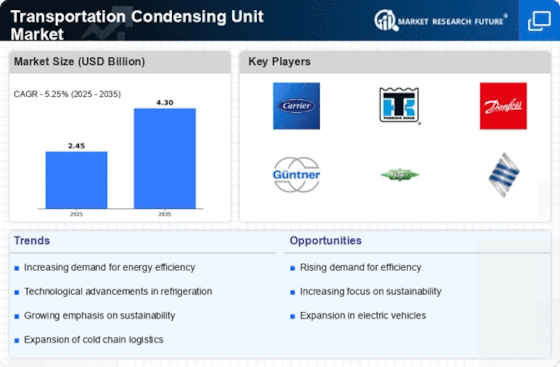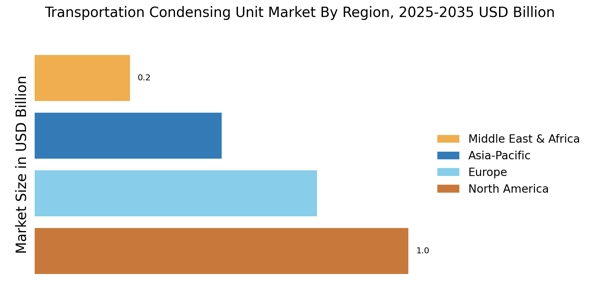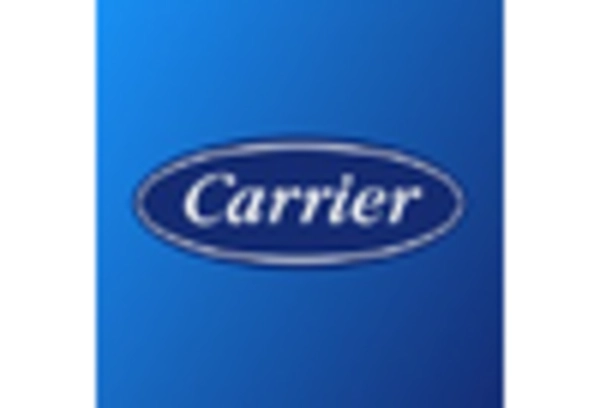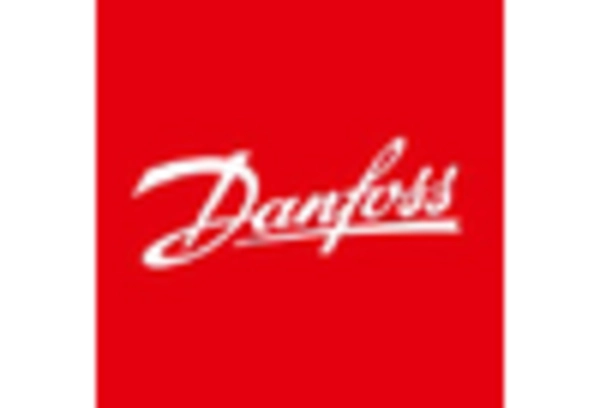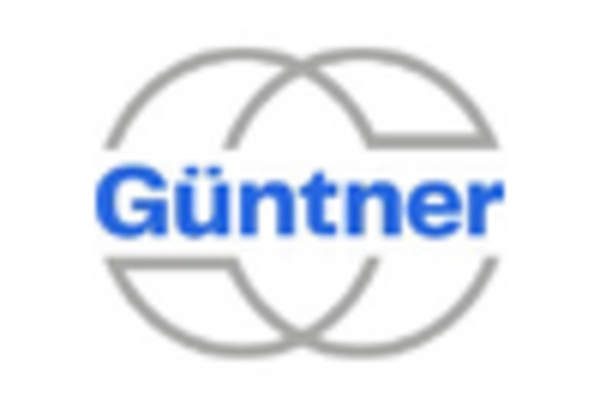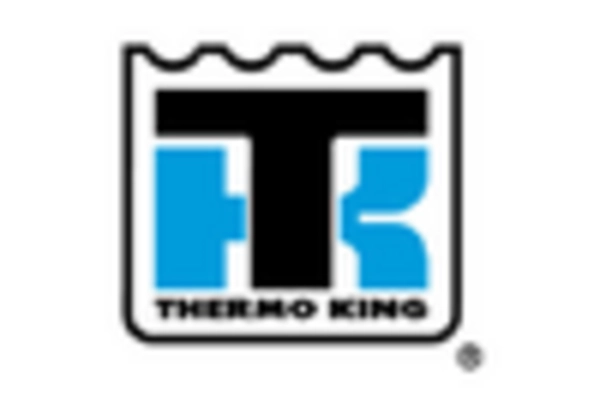Increasing Regulatory Standards
The Transportation Condensing Unit Market is significantly influenced by the tightening of regulatory standards concerning environmental sustainability and energy efficiency. Governments across various regions are implementing stricter regulations aimed at reducing greenhouse gas emissions and promoting energy-efficient technologies. For example, regulations such as the European Union's F-Gas Regulation are pushing manufacturers to develop condensing units that utilize low-GWP refrigerants. This shift not only aligns with The Transportation Condensing Unit Market. As companies adapt to these regulations, the demand for compliant and efficient transportation condensing units is expected to rise, potentially leading to a market expansion worth billions in the coming years.
Rising Demand for Refrigerated Transport
The Transportation Condensing Unit Market is experiencing a notable increase in demand for refrigerated transport solutions. This trend is primarily driven by the growing need for efficient cold chain logistics, particularly in the food and pharmaceutical sectors. According to recent data, the refrigerated transport market is projected to grow at a compound annual growth rate of approximately 5.5% over the next few years. This growth is indicative of the rising consumer expectations for fresh and safe products, which in turn propels the demand for advanced transportation condensing units. As businesses strive to maintain product integrity during transit, the Transportation Condensing Unit Market is likely to see a surge in innovation and investment, enhancing the overall efficiency and reliability of refrigerated transport systems.
Technological Innovations in Cooling Systems
Technological advancements are playing a pivotal role in shaping the Transportation Condensing Unit Market. Innovations such as variable speed compressors, advanced heat exchangers, and IoT-enabled monitoring systems are enhancing the performance and efficiency of condensing units. These technologies not only improve energy efficiency but also reduce operational costs for logistics companies. For instance, the integration of smart technologies allows for real-time monitoring of temperature and humidity levels, ensuring optimal conditions for perishable goods. As the market evolves, the adoption of these cutting-edge technologies is expected to drive growth, with estimates suggesting that the market for advanced cooling systems could reach several billion dollars by the end of the decade.
Focus on Energy Efficiency and Cost Reduction
The emphasis on energy efficiency and cost reduction is a driving force in the Transportation Condensing Unit Market. As fuel prices fluctuate and operational costs rise, logistics companies are increasingly seeking solutions that enhance energy efficiency. Advanced condensing units that utilize eco-friendly refrigerants and innovative designs can significantly lower energy consumption. Reports suggest that energy-efficient systems can reduce operational costs by up to 30%, making them an attractive option for businesses. This focus on cost-effective solutions is likely to stimulate investment in the Transportation Condensing Unit Market, as companies strive to optimize their logistics operations while adhering to sustainability goals.
Growth of E-commerce and Online Grocery Delivery
The surge in e-commerce and online grocery delivery services is a significant driver for the Transportation Condensing Unit Market. As consumers increasingly prefer the convenience of home delivery, the need for reliable refrigerated transport solutions has escalated. This trend is particularly evident in the food sector, where maintaining the cold chain is crucial for product quality and safety. Market analysis indicates that the online grocery market is expected to grow at a rate of over 20% annually, further amplifying the demand for efficient transportation condensing units. Consequently, logistics providers are investing in advanced refrigeration technologies to meet the rising expectations of consumers, thereby propelling the growth of the Transportation Condensing Unit Market.


